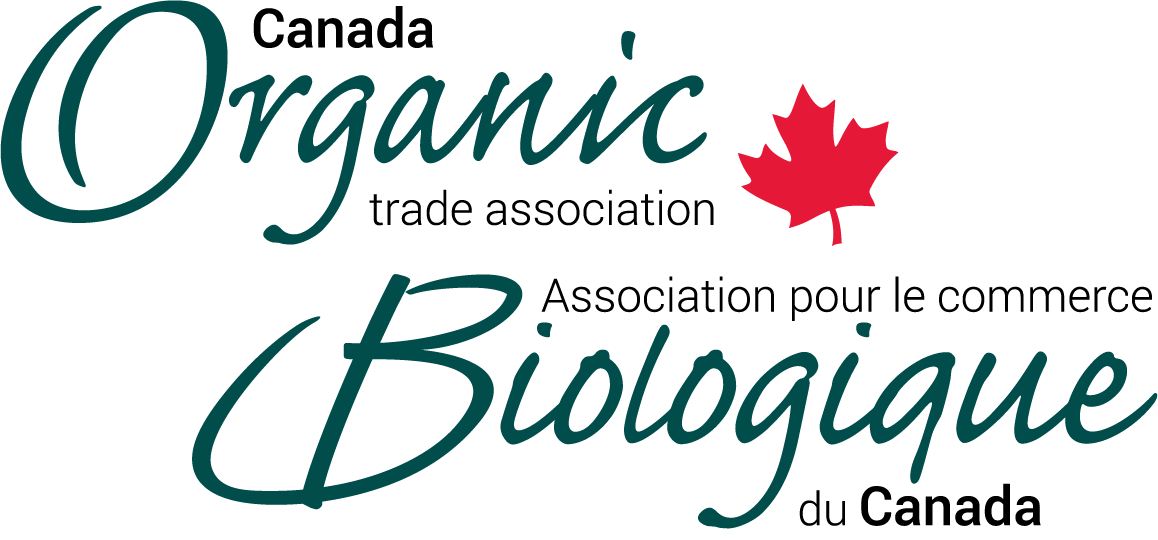This is an evolving situation. This page will be updated as new information becomes available.
COTA is working on your behalf
The recent tariffs from the U.S. have caused much uncertainty and challenge for Canadians and businesses since the start of the year.
The organic sector in Canada and the U.S. have experienced strong growth in the sector and increased availability and accessibility of organic products in our markets with our longstanding tariff-free partnership. As one another's largest organic trade partners, Canada and the U.S. benefit from a progressive organic equivalency arrangement that has facilitated seamless trade for the last 16 years. It is essential to uphold this framework and the strong positive trade relationship between our two nations.
COTA is uniquely positioned to engage in discussions with key allied advocates, policymakers, and trading partners, including the U.S., European Union, and the Indo-Pacific region. The Canadian organic sector has a history of resilience and innovation, and together, we will continue to navigate these challenges. As you assess risks, explore supply chain and market diversification, uncover new opportunities, or implement risk-mitigation strategies, COTA is committed to supporting you every step of the way.
We encourage you to reach out to share your perspectives and challenges. Your input helps shape our ongoing advocacy.
Timeline
-
Statement by the Prime Minister on CAN-U.S. trade, August 22, 2025
Updated as of September 4, 2025
Frequently asked questions
How do I know if organic products I import will have retaliatory tariff measures?
Prime Minister Carney announced that Canada will remove all tariffs on U.S. goods covered under the Canada-U.S.-Mexico Agreement (CUSMA) by September 1st. Tariffs on steel, aluminum, and autos will remain in place, but this change is part of the Canadian Government’s attempt to re-establish free trade between the two countries.
The Department of Finance Canada published a list of products from the United States that are subject to 25 per cent tariffs, which can be found HERE.
Essentially, products that are CUSMA compliant won't be subject to tariffs from Canada or the United States. If you are not CUSMA compliant and still facing tariffs we would like to hear from you. Contact us via the bottom of this page.
What programs does COTA have to support the diversification of my market?
Organic Promotion Fund:
A dedicated pool of resources designed to boost sales of organic within our domestic market.
Organic Export Support Fund:
A grant to COTA members to help cover the cost of shipping samples to international buyers.
What is the difference between “Made in Canada” and “Product of Canada”?
Goods that are a “Product of Canada” must have at least 98% Canadian content. Goods “Made in Canada” are subject to a 51% threshold of Canadian content but should be accompanied by a qualifying statement indicating that the product contains imported content.
What can my business do to mitigate tariff damage?
Some of the things that businesses can do include:
-
Stay informed. This includes keeping current on the issue and what supports and opportunities are available. COTA is your committed partner to navigate through this.
-
Review contract clauses (e.g., change of law, force majeure) to assess tariff risk.
-
Evaluate and consider the country of origin of your goods.
-
Diversify supply chains and explore alternative sources.
-
Leverage Canada’s 9 organic equivalency arrangements for new export markets. In addition to the U.S., Canada has organic equivalency arrangements with the European Union, Switzerland, the United Kingdom, Costa Rica, Japan, Taiwan, Mexico and South Korea.
-
Leverage the “buy Canada” sentiment if your products are “made in Canada” or a “product of Canada” to grow your domestic market.
-
Look for opportunities in new product offerings, partners, and markets.
-
Communicate with suppliers and customers so that you can all prepare.
-
Engage with COTA and let us know your needs and challenges as we advocate on your behalf.
Government supports
Remission process: The government is also taking steps to mitigate the impact of these countermeasures on Canadian workers and businesses by establishing a remission process to consider requests for exceptional relief from the tariffs imposed as part of their response to the U.S. applying unjustified tariffs on Canada.
Trade Impact Program: The program will deploy $5 billion over two years, starting this year, to help exporters reach new markets for Canadian products and help companies navigate the economic challenges imposed by the tariffs, including losses from non-payment, currency fluctuations, lack of access to cash flows, and barriers to expansion.
Making $500 million in favourably priced loans: available through the Business Development Bank of Canada. This will support impacted businesses in sectors directly targeted by tariffs, as well as companies in their supply chains. Businesses will also benefit from advisory services in areas such as financial management and market diversification.
Providing $1 billion in new financing: through Farm Credit Canada to reduce financial barriers for the Canadian agriculture and food industry. This lending offer will help address cash flow challenges so that businesses can adjust to a new operating environment and continue to supply the high-quality agricultural and food products that Canadians rely on.
Resources
Startup Canada Tariff Toolkit: Resource guide designed to help entrepreneurs and support organizations navigate the complexities of tariffs and their impact on Canadian businesses.
U.S-Canada Trade: State by State Impact: Government-developed assets and information that can be used to illustrate the importance of the economy of different states to Canada. Not specific to organic.
Export Development Canada: U.S. market intelligence. Get the information you need to navigate Canada's largest export market. Link to programs, market intelligence, and funding
Trade Commissioner Services CanExport Funding: Funding to cover up to 50% of the costs of exporting products or services to countries where you have little or no sales.
Business Development Bank of Canada: Tariff tool for Canadian businesses, including information and funding
Trade Commissioner Services: TCS helps companies navigate the complexities of international markets and make better business decisions and is on the ground in more than 160 cities worldwide.
Trump-Proofing your Organic Field Crop Rotation: Report assessing risks that Canadian organic field crop traders, processors and producers face if the United States of America (U.S.) imposes trade tariffs on these products. Published Feb 28, 2025 on Organic Grain Hub.
Finance Committee webpage dedicated to U.S. tariffs: Includes background on the situation, practical information and resources for businesses.
CanExport SMEs: The CanExport SMEs program of Canada's Trade Commissioner Service is designed to encourage small and medium-sized enterprises (SMEs) to export Canadian goods and services to new international markets.
Updated September 4, 2025
Get in touch
My-Lien Bosch
Government Relations and Government Affairs Manager
Mbosch@canada-organic.ca
(613) 482 1717 ext. 208

